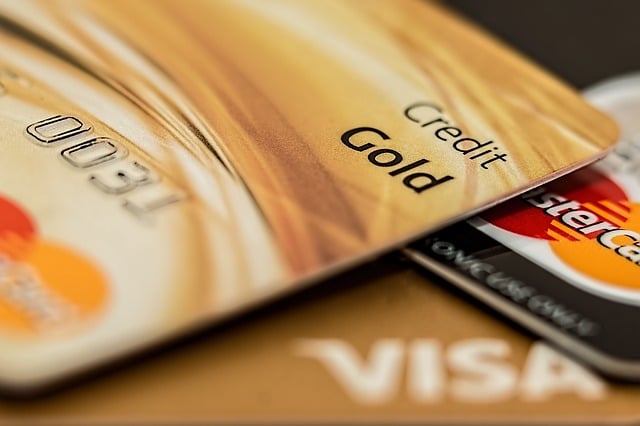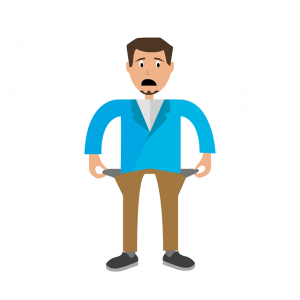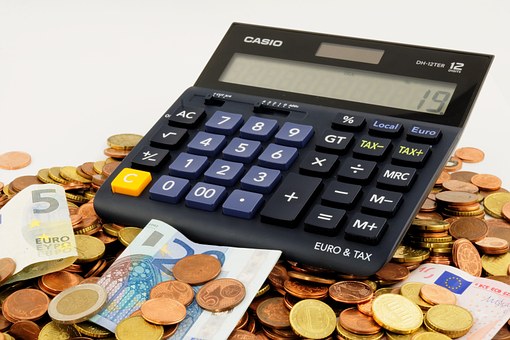To be “in debt” means to owe money to someone else, usually making fixed payments to pay back the amount over time, plus interest.
Debt means different things to different people – having some debt is perfectly healthy for your personal finances, but too much can leave you buried. There is also a major difference between personal debt and business debt.
Personal Debt
Your “personal debt” is how much money you owe to other people, businesses, banks, credit card companies, and other creditors. Your total debt also includes any outstanding mortgages and student loans.
Having personal debt is not inherently a bad thing, but having too much debt so that you are unable to pay it back in a timely fashion is a huge problem. Reaching the point where you are unable to pay back your personal debt is known as being insolvent.
Sources of Personal Debt
There are many sources of personal debt, some are considered healthier than others.
Credit Card Debt

Credit card debt is having an outstanding balance on your credit card. Each month that you have an outstanding balance, you are required to make at least a minimum payments. Interest will continue to accrue on the outstanding balance you haven’t yet paid back, so you will be paying back even more later.
The good news is that using a credit card responsibly is a basic way you can build your credit. Building credit shows your trustworthiness in using borrowed money. This helps develop your credit score, providing opportunities for getting additional loans for mortgages and other big purchases later in life. The bad news is that credit card debt which grows too quickly or remains outstanding for too long is one of the key sources of financial trouble for young people.
For students and individuals just starting their first jobs, having a credit card may feel like a blessing. Credit cards can sometimes be used as “bridge funds” between paychecks or student loan payouts. They allow you to make purchases or make payments on living and school expenses. Having that card available may seem like an easy fix to your current financial dilemma. However, if you don’t quite understand how credit cards work, you can rack up a large amount of credit card debt, leaving you with large monthly payments that need to be taken care of. This could create a situation where you are unable to pay back the full amount in a timely manner. Remember that every month that you have a balance on your card, interest builds up, making it more expensive to pay off the card in the long run.
Credit card debt does have its place in most people’s financial lives, though. When used appropriately, credit cards can be a great way to build up a credit history, and most credit card companies offer reward programs that can make credit cards more attractive to use than cash for everyday purchases.
Student Loan Debt

Many university students need to take out student loans to finance their education. Student loans are a lump-sum form of debt that usually pays out every semester or year, but the loan does not need to be repaid until after you graduate from the university and hopefully find a job.
Student loans are popular because they make it easier for more people to obtain higher education, and by living off borrowed money, students can focus entirely on their studies. Even students who work while in school may still take out a student loan to help pay for tuition costs. The major downside to having student loans is that these former students begin their professional lives with a large cloud of student loan debt looming.
Even though you may not need to start paying back your loans until after graduation, interest usually starts accumulating as soon as the loan is dispersed. This means that the longer you wait to start paying it back, the bigger the debt becomes.
Student loan debt is also treated differently from other types of debt. Even if you file bankruptcy, you probably won’t be able to discharge your student loans. (Discharging debt through bankruptcy means your debt is cancelled. You no longer owe.) This exception in the law exists to prevent fresh graduates from declaring bankruptcy right out of school and discharging their full debt immediately. It means that regardless of how insolvent you become, you will still have to pay back your student loans. In recent years, if you still owe on your student loans and haven’t been making payments, the government will try to retrieve what you owe by keeping a portion of your income tax returns.
Mortgages and Car Loans

Mortgages and car loans are loans taken out to pay for a house or car. These loans usually have the house or car you’re buying posted as “collateral”, meaning that if you fail to pay back the loan, the house or car could be repossessed to pay back the debt.
Mortgages and car loans are usually looked at as positive debit. As long as you made good purchasing decisions and received loans with decent interest rates, taking out these loans is seen as a necessary part of your credit life. Their major downside is that these loans are typically much larger than what you would see with normal credit card debt, which means you will be paying them back over a much longer period of time.
The longer you are paying back a debt, the more careful you have to be that you always have enough money available to make at least the minimum payment, otherwise the loan will going into default. For example, if you take out a 20-year mortgage on your house, you need to be sure that you have a plan to keep making the mortgage payments for the next 20 years, even if you lose your job somewhere along the line or a financial disaster strikes.
Generally speaking, if you find yourself in the position where you think you might not be able to make your mortgage or car payment, you will be in a better position if you sell the house or the car yourself rather than waiting until your creditors seek repossession.
Impact of Debt on your Net Worth
Your net worth is based on your balance of assets (things you own like your house, cash, jewelry, and anything else of value) against your liabilities (your total debt). As your debt increases, your net worth goes down.
The flip side is that if you use debt to make valuable purchases, like taking out a mortgage to buy a house, the value of this asset (your home) may increase at a higher rate than the interest you pay on it. When looking at increasing your net worth, consider the lifetime growth of your assets against the debt needed to fund the purchase of those assets.
Defaulting On Personal Debt – Creditor’s Options
If you “default” on your debt, it means you are unable to repay it, and your creditors will start attempting to recover their loss. This can lead to debt collection for them or bankruptcy protection for you.
There are different legal methods that creditors can take to collect their debt from you. During this process, there are consumer protections to safeguard you against illegal practices.
Repossession
If you posted anything as collateral for your loan (like your car), the creditor can take possession of that item if you stop making your loan payments, and they can usually do this without notifying you. The creditor can then sell off what is repossessed and use the sale to satisfy the amount that was owed. If they can’t get back the amount that you owe them when it is sold, you may still be liable to pay back the difference.
Wage Garnishment
If there was no collateral involved with the loan, the creditor can sue you which forces you to pay back the loan amount. The court system provides different methods to recover the money. One common method is “wage garnishment.” In this method, a certain amount of money is taken out of your paycheck directly and sent to the creditor before you even see it. There is usually a cap on how much can be taken, generally no more than 25% of your paycheck, but the cap can be lower depending on the state you live in.
Property Lien
A “property lien” is another type of court order which a creditor can use to recover money from an unpaid debt. A property lien is a public statement saying that you owe the creditor money, and that until that debt is repaid, the creditor now owns a piece of your property. Having a property lien does not immediately do anything to you, but it opens up the door to foreclosure. The creditor could force the sale of your property to satisfy the debt you owe.
Most creditors prefer to avoid foreclosure since it is a lot of work to arrange the sale, so foreclosure is typically left as a “last resort.” Instead, if you have a property lien against an asset, you will typically have to pay off your debt by using the proceeds you make when you sell the property. Once the lien has been paid, you will then have a “clear title” that you can use to transfer ownership to the new owners. If your creditor does decide to foreclose on your property, they only have a right to the amount of money that they’re owed. If the property is sold for more than you owe, you get to keep the rest of the money.
Defaulting On Personal Debt – Debtor’s Rights
Even if you default on your debt, you still have certain rights and options available.
The Fair Debt Collection Practices Act
The Fair Debt Collection Practices Act is a consumer protections measure that helps protect individuals from unfair harassment by their creditors. It makes it illegal for creditors to
- Call you before 8 a.m. or after 9 p.m.
- Call you at work if you tell them your boss does not allow it
- Publicly post your name and address as a “bad debtor”
- Pretend to be a lawyer or police officer to force you to pay your debt
- Pretend they have a court order when they don’t
- Contact you at all if they know you are represented by a debt attorney
- Contact your friends/family/co-workers and tell them about your debts
- Contact you (other than with official court papers) after you explicitly request in writing that they stop
The Act also requires anyone who contacts you about your debt to tell you who they are calling on behalf of and the total amount you owe. If a debt collector breaks any of these rules, they can be penalized by the Consumer Financial Protection Bureau.
Bankruptcy

If you really find yourself insolvent, you may need to consider bankruptcy. A simple bankruptcy, known as “Chapter 7,“ involves selling off all your assets above a minimum threshold (usually $5000 – $6000). A trustee takes possession of all your property and assets and sells them. The proceeds are then distributed between your creditors. Over 90% of all bankruptcies are this type.
After declaring bankruptcy, all debts (apart from student loan debt, child support, and a few other special cases) are “discharged.” The creditors are no longer able to collect on them. However, the person who filed for bankruptcy generally will be unable to obtain any new credit for 3 to 5 years. This impacts financial transactions such as getting a simple credit card or even renting an apartment. A bankruptcy will appear on your credit report for 7 years. Remember that using credit deals with trustworthiness, so declaring bankruptcy shows others that you didn’t hold up your end of the deal. You will need to work extremely hard to repair your financial reputation.
Business Debt
Business debt works a bit differently from personal debt. Businesses (especially big businesses) are in debt nearly all the time. Making payments on this debt is generally considered part of their normal operating expenses.
Why is Debt Different for Businesses?
When you take on personal debt, you know you will be paying off that debt for a period of time. Eventually you want to retire and live off your savings, so it is in your best interest to minimize how much debt you have by that time. During your working years, you will also probably have a cap on how much more money you earn each year. Most people don’t expect to receive 20% raises every year for their entire life.
These constraints do not apply for businesses. They expect to exist and continue to do business forever, so they do not have a point on their horizon where they need to be “debt free.”
The biggest difference, though, is that businesses use debt as leverage. They borrow money in order to make more money through opening new factories, hiring new employees, doing more research, etc. Each time a business takes out a loan, it is saying that it expects to be able to use that money to make more money. And the money earned is greater than the cost of that loaned money. For example, if a business can borrow $10,000 with a 10% interest rate to bring a new product to market this year, and it can earn $30,000 in extra revenue from sales of that product, then taking out that loan is a positive decision.
As businesses pay off their debts, they will often continue to re-finance, or borrow against the new value they have created since their last loan. This means that their actual dollar amount of debt grows over time. With individuals, we are mostly concerned with how big our debt is, but a business only needs to worry about how much they are paying back relative to how much they are earning. If their earnings keep increasing, then there isn’t a problem if their debt is increasing too, as long as their debt is not growing faster than their revenues.

Get PersonalFinanceLab
This lesson is part of the PersonalFinanceLab curriculum library. Schools with a PersonalFinanceLab.com site license can get this lesson, plus our full library of 300 others, along with our budgeting game, stock game, and automatically-graded assessments for their classroom - complete with LMS integration and rostering support!
Learn More[qsm quiz=77]
Challenge Questions
- In your own words, explain what debt is.
- List as many different types of debt as you can.
- How can having debt cost you more money?
- What message or warning would you give to anyone before they get into debt?
- Are there any pieces of advice that you would share with others about managing their money to avoid debt?
